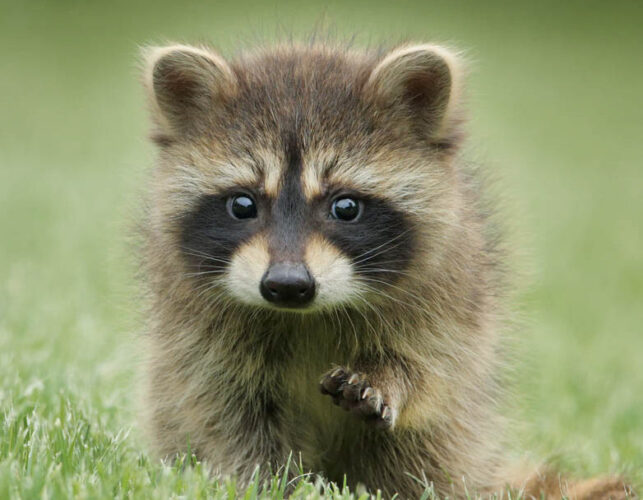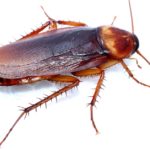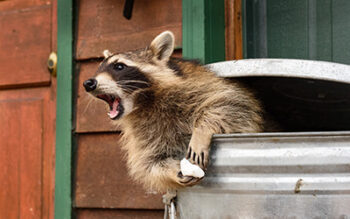
With spring comes April showers, warmer temperatures – and raccoon babies. If raccoons were an issue in your area before, now you might have even more of a problem.
What Month Do Raccoons Give Birth?
Raccoons mate in late winter so they usually give birth in April and May. However, babies can occasionally be born as early as March and as late as June if unusually warm or late winters modified their typical patterns. In extremely rare circumstances, babies could be born in July if a raccoon mother lost her litter early on and mated again quickly.
Why should you care about raccoon breeding season? Because pregnant raccoons are more likely to seek warm spaces safe from predators to create nests. That makes your home, and especially your attic, an attractive target.
What Are Raccoon Babies Called?
Raccoon babies are called kits. Raccoons usually only have one litter a year with three to seven kits or babies in the litter.
Like many other creatures, raccoons are born with their eyes shut and don’t usually begin to see until after they’re 21 days old, and they aren’t weened until they are 7-10 weeks old. That makes them entirely dependent on their mothers, which is extra incentive for needing a safe nest and ending up in your home.
This is also why the humane removal of raccoons and their kits must be handled by professionals, like our experts at Arrow.
How Can You Tell If Raccoons Are In Your House?
Raccoons in your home, attic, etc. can cause a lot of damage to walls, ceilings, wood work, and more. Fires are even possible from chewed wiring. Plus, raccoons can carry mites, parasites, and more which can cause problems.
In the worst-case scenario, raccoons can also carry rabies. According to the Centers for Disease Control (CDC), raccoons are one of the main carriers of rabies in the U.S. and a “rabies vector species.”
SIGNS A RACCOON IS IN YOUR HOUSE:
- Baby raccoon cries and chirps – like human babies, they cry a lot
- Sounds of rustling and thumping in the walls and/or ceiling
- Visible damage like bent siding, a dented roof vent, or damaged soffits
- Seeing an adult raccoon on your property — the mother will forage for food for her babies
Are Baby Raccoons Dangerous?
Yes, baby raccoons can be dangerous because they can bite and scratch if you try to pick them up, which is why you want a professional to humanely remove them. They might also carry parasites, mites, and disease transmitted to them by their mother.
Baby raccoons are not born with rabies. However, they can be infected shortly after birth if their mother is shedding the rabies virus.
Raccoons have legal protection in New York State, which means they can only be trapped and transported by those licensed by the State Department of Environmental Conservation, such as Arrow Exterminating. If you think raccoons – with or without babies – have gotten into your home, call us before they damage your home. We have protocols for handling them and any other need you may have during the current COVID-19 outbreak.
Let Arrow Exterminating Handle Raccoons
The best way to deal with a raccoon is to call in the professionals at Arrow Exterminating. If you have a raccoon problem, let us help you get back to living in a critter-free environment. To get started, contact Arrow Exterminating today.







